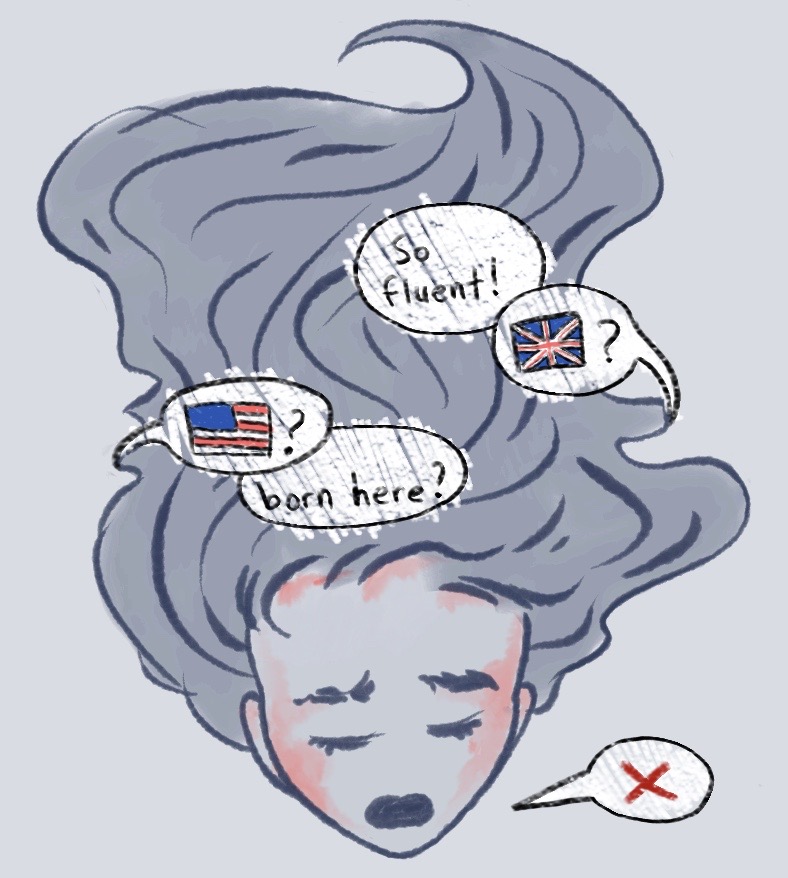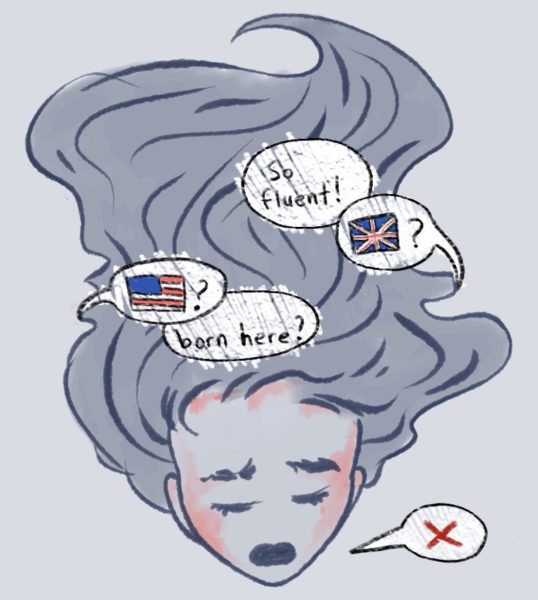

“Aakanksha! Say the letter ‘H’ for me”
Startled, I looked around my fourth-grade classroom, trying to find the source of the voice. A few tables over, I found the speaker, who repeated herself with exasperation.
Surprised at my classmate’s simple request, I proceeded to pronounce “H” for her.
“Hetch,” I replied with confidence.
My classmate whispered something to her friend, and they both giggled as if the letter H amused them immensely. Puzzled, I was still looking their way when the second girl glanced over at me and scoffed: “It’s aych. Not however you said it.”
I inhaled sharply and stiffened in my seat. The direct statement felt like a slap in my face. After that incident, people often asked me to say certain words and ridiculed my accent.
“I started to feel insecure and excluded based on my Indian identity”
I started to feel insecure and excluded based on my Indian identity. I tried hard to change how I spoke so I wasn’t mocked. I felt as if being born in America was significantly better than being born somewhere else, as if being an immigrant was somehow wrong.
That year I made a friend who was an immigrant like me. We spent most of our lunchtime together, discussing our experiences in the U.S. and our lives before we moved.
Once, a boy walked up to us on the playground and candidly spoke to my friend: “you have a really heavy accent.” My friend immediately and firmly denied it, to which the boy just shrugged and ran back.
I was in awe of her prompt and confident response. She did have an accent, but I don’t think I ever found out why she denied it. Maybe it was because she didn’t want to accept a part of her that made her different. Maybe she was ashamed. Maybe it was because of her cultural pride, or her open mind about the fact that a standard “accent” is a societal construction. I now chose to assume the latter. I realize the error in my old perspective. I began asking myself why I was changing the way I spoke just so I could fit in. I didn’t realize that, even if to a small extent, I was being discriminated against because of my accent.
Accent discrimination is an unjustifiable bias against individuals who speak English without the standard American accent. It occurs when prejudice against certain accents evolves into actions that can have detrimental impacts. Some general examples include imitating and mocking foreign accents, terminating workers because of the way they speak and bullying those with an accent. In fact, reports of workplace discrimination based on language ability and foreign accents increased by 76% from 1997 to 2011, resulting in more than 11,800 complaints being filed with the U.S. Equal Employment Opportunity Commission.
“When immigrants like me work hard to change our accents … we shed our identities”
Accent discrimination is powerful, but it’s often overlooked. It is responsible for social discrimination. We discuss and stand against visible acts of racism through skin color, gender and ethnicity. But language is a powerful source of discrimination, and we still forget any and all biases based on it.
No one should decide which accent is right and which is wrong. Unfortunately, the Western world spreads its influence through language: not only is English largely essential all around the world, but people are shamed for not speaking it the “correct” way, which is relative based on location.
Language is so much more than how we speak. It is our identity, and it makes us unique. When immigrants like me work hard to change our accents so we don’t have to face the discrimination, we don’t just change the pronunciation of words, we shed our identities. Accents carry stories of our roots and backgrounds. Excluding and mocking specific ethnic groups solely on the basis of their accent is a result of the prejudices we hold as a society by believing that certain accents are unsuitable in certain parts of the world.
The consequence of prolonged accent discrimination is the continued exclusion of certain ethnic and social groups, separated from those who speak English “correctly.” Language creates an invisible barrier. In the end, our stereotypes of social and ethnic groups form discrimination, not the sheer sounds we call accents.
Today, after spending years in a place surrounded by people who speak in the standard American accent, I have grown into it, but I still speak with a touch of my Indian accent because it makes me who I am, and I have no intention of changing that.



